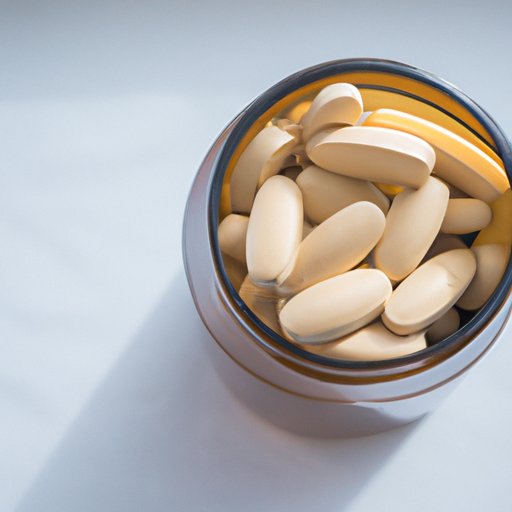
Introduction
Vitamin D is a vital nutrient that plays a crucial role in bone health, immune function, and overall wellness. It helps regulate calcium and phosphorus levels in the body, which are important for maintaining strong bones and teeth. However, many people experience low vitamin D levels, which can lead to health problems. In this article, we will explore what helps vitamin D absorption and offer tips to boost your levels.
The Importance of Sun Exposure
The sun is a primary source of vitamin D. When UVB radiation from the sun hits our skin, it triggers a process in which a cholesterol compound in the skin is converted to vitamin D3. This form of vitamin D is then transported to the liver and kidneys, where it is converted into the active form of vitamin D that the body can use.
Regular sun exposure is crucial for maintaining healthy vitamin D levels. However, it is essential to practice safe sun exposure practices to avoid skin damage. Sun exposure times vary based on factors such as skin type, location, and time of day. Generally, it is recommended to spend 10-15 minutes a day in the sun without sunscreen to promote vitamin D synthesis.
Food Sources
Apart from sun exposure, food sources also play a critical role in obtaining vitamin D. Some of the top foods high in vitamin D include:
- Fatty fish such as salmon and mackerel
- Egg yolks
- Cheese
- Mushrooms
- Fortified foods such as milk, orange juice, and cereal
Incorporating these foods into your diet can help you boost your vitamin D levels. It’s important to note that how the food is prepared can affect absorption. For example, boiling can cause vitamin D to leach out of foods. Therefore, grilling, baking, or sautéing can be better cooking methods for foods rich in vitamin D.
Additionally, eating foods high in fat can also improve vitamin D absorption, since vitamin D is a fat-soluble vitamin. Therefore, pairing vitamin D-rich foods with healthy fats such as avocado or nuts can be beneficial in improving absorption.
Vitamin D Supplements
In cases where sun exposure and diet alone are not enough to maintain healthy vitamin D levels, supplements can be helpful. Supplements come in two forms: vitamin D2 and vitamin D3. Vitamin D3 is the form of vitamin D produced by the skin from sun exposure and is typically more effective than vitamin D2. It’s important to talk to your healthcare practitioner to determine the right dosage and supplement type for your needs.
It’s also essential to be aware of any potential side effects of supplements. Overdosing on vitamin D can lead to elevated blood calcium levels, which can cause harmful symptoms such as nausea and vomiting. Therefore, it’s crucial to take supplements only under a healthcare practitioner’s guidance and avoid exceeding the recommended dosage.
Exercise
Physical activity also impacts vitamin D levels. Regular exercise can help improve vitamin D absorption by promoting circulation and blood flow. Additionally, weight-bearing exercises such as running, hiking, and tennis can help strengthen bones and improve overall bone health.
Exercise in outdoors can have a dual benefit since it can also promote sun exposure that can boost vitamin D synthesis. However, sunscreen and safe sun exposure practices are still important when partaking in outdoor physical activity.
Avoiding Certain Medications
Certain medications can also affect vitamin D absorption, leading to low vitamin D levels. Some common medications that can impact vitamin D levels include anticonvulsants, corticosteroids, and certain cholesterol-lowering drugs.
If you are taking any of these medications, talk to your healthcare practitioner about alternatives or solutions to ensure healthy vitamin D levels.
Health Conditions
Certain health conditions can also impact vitamin D absorption. Some common health conditions that can lead to low vitamin D levels include Crohn’s disease, celiac disease, and kidney disease.
Managing these health conditions can be essential in improving vitamin D absorption, and working with a healthcare practitioner can help develop an effective management plan.
Conclusion
Vitamin D is an essential nutrient that plays a vital role in overall health and wellness. Boosting vitamin D levels can be achieved through various methods, including sun exposure, food intake, supplements, exercise, and managing health conditions. By incorporating these tips into your daily routine and consulting with a healthcare practitioner, you can significantly improve your vitamin D absorption and lead a healthier life.





